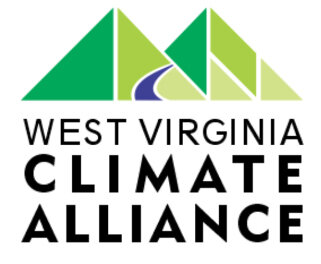CLIMATE SUMMIT: Environmental justice and the climate crisis
Below is a presentation on environmental justice and the climate crisis by Pam Nixon from the AUG. 24, 2021 WV Climate Alliance summit, "CLIMATE, JOBS and JUSTICE: A Public Forum on West Virginia's Future.” Her career started out working twenty-four years as a medical laboratory technologist in clinical laboratories in the Charleston WV area. She retired after fifteen years as an Environmental Advocate at the West Virginia Department of Environmental Protection. Nixon was the conduit between the public and the DEP by organizing public education forums on state and federal environmental regulations, and empowering communities to participate in decision making processes. She began community service in the mid-1980s promoting environmental and social justice issues, has served on boards of directors of several local organizations, and has received numerous awards from the US EPA and various civic organizations. Currently, she is the Chair of the Charleston Branch NAACP Environmental & Climate Justice Committee.
VIEW ENTIRE 2021 CLIMATE SUMMIT: youtu.be/-m54X7PVsC0
TRANSCRIPT OF VIDEO:
Excerpt from the Aug. 24, 2021 "CLIMATE, JOBS and JUSTICE: A Public Forum on West Virginia's Future," sponsored by the West Virginia Climate Alliance. VIEW FULL SUMMIT AT: https://youtu.be/-m54X7PVsC0
PAM NIXON: Climate change is affecting all of us both, but the low-income communities and communities of color are bearing the worst of the consequences, and many are now struggling to pay her energy bills. During heat waves they experience higher heat related illnesses and death. Many disenfranchised communities are composed of people of color, the low-income immigrants, elderly, youth, disabled and the LGBTQ-plus, and often they are located in low lying areas, leaving them at risk of property damage from extreme flooding. These marginal communities are called front line, fence line or environmental justice communities.
Many here in West Virginia are already vulnerable due to the nutritious food scarcity, limited access to healthcare limited affordable safe housing, and they are already being exposed to poor air quality and water quality.
Our extractive fossil fuel resources and manufacturing industries provide jobs to feed our families and to educate our families also. But they also so also pose health risks for the workers and nearby communities. These health risks can be anything from cancers to cardiopulmonary disease to asthma, COPD, black, lung, and etc. The solution is to actually have the political will to make policy changes that will actually help vulnerable communities to dramatically reduce industrial toxic emissions of greenhouse gases from the source, to advanced energy efficiency and the use of clean renewable energy and to strengthen community resilience and livability.
In the past, community members have been included in the talks, but when it came to the decisions, they were actually told what was going to take place. To bring about justice, frontline communities need technical assistance to be equal participants in identifying the risks and finding solutions. Each community is unique, so developers need to share the best practice models from across the regions in order to expand resilient affordable housing options.
Funding is needed to support pre-disaster actions too reduce the impacts of climate change. Stronger infrastructure is needed to ensure that a reliable grid will deliver dependable wastewater treatment, potable water, and energy.
So, who are the key players? They are community organizations, county and city and community development agencies. And remember, in West Virginia, many of our struggling communities are unincorporated and don't have the support of being a municipality. We should have also nonprofits and legal resources to aid local efforts to support resilient, affordable housing. There will be the need for grants and trustworthy financial institutions and nonprofit development.
Residential and tenant association programs will also be needed to support the tenants and to promote the improvements that can be made to already existing buildings. And when training occurs for the fossil fuel impacted workers, so as not to leave them behind so that they can make a just transition, we should also include the BIPOC communities — and in case you're not sure what a BIPOC community is, it's Black or African Americans, indigenous people and people of color. Many of these communities were left behind from the very beginning as a result of historic systemic barriers. Include us in the training for the manufacturing, installation, maintenance, and other technical skill sets in the clean energy field.
And if you include us, then we will have a just transition.

